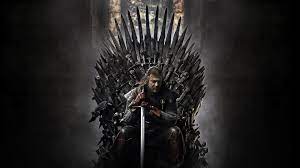The Saga of Toxic Masculinity
By Zemarr Brandao.
My grandmother always tended to put less food on my plate than my brothers. When I would ask her why she would tell me they needed more food than me, she told me it was because she wanted them to be strong. I always looked at her bewildered; they had first dibs on seconds. I have always said that growing up with four brothers has taught me to advocate for myself. They were bigger and had strong characters and self-esteem. They taught me that I had to demand what I wanted because it was what I deserved.
I guess you can say they gave me an enormous ego and pridefulness; however, it is not as large as the men in the Saga of the Volsungs. The men in the Saga of the Volusungs are fueled by pride validated in their masculinity. In society, masculinity is associated with brute strength and strong self-esteem. There is nothing wrong with men having strong self-esteem and being strong; however, some men feel the urge to demonstrate their masculinity through acts of strength to reinforce their sense of self, and today this is known as toxic masculinity.
Toxic masculinity is ever-present in the Saga of the Volsungs; after all, it is one of many Icelandic sagas written in the thirteenth century. Although the saga has elements of Norse mythology–Odin’s presence–it is considered a Norse legend. Toxic masculinity cannot help but be present in Norse legend as its mythology praises gods such as Thor for their brutal strength and pride. Don’t let Chris Hemsworth’s handsome face fool you. Thor is prideful and ruthless. The themes of brutal strength and pride are ultimately the fall of most of the Volsung family–excluding Sigmund and Signy–and King Siggeir. William Morris, a British poet, continues themes of toxic masculinity in his lyric by dramatizing King Siggeir’s feelings when Sigmund draws Gram–Odin’s sword–from the tree trunk.

In the saga, King Siggeir had brought many worthy men with him to Gautland, yet none of these men, including King Siggeir, had the strength to pull Gram from the tree (38). It is not until Sigmund’s turn that Gram is set loose for all to behold, and “no one had recalled seeing so fine a sword” (39). Sigmund pulling the sword proved that in the eyes of Odin–disguised as a beggar–he was the only one the supreme god deemed worthy. This directly threatens King Siggeir and his legitimacy and pride as a king, yet the saga gives little detail of King Siggeir’s true anger and jealousy. To make matters worse, King Siggier offers gold for the sword from Sigmund; Sigmund responds, “you could have taken this sword from where it stood…now it has come first into my hands, you will never obtain it” (39). At this moment, King Siggeir’s power and right to anything he desires are tested. A King is always first and eventually gets what he wants and demands as he has the political, fiscal, and physical power to take it. King Siggeir, aware of this fact, “pretend[s] [he does] not care about the matter” (39). His plot for revenge is justified here, as Sigmund has threatened his strength. Ironically Sigmund is the only male Volsung to survive. This action reveals that King Siggeir is not worthy of the sword as his troops lost eight ranks of soldiers to bring down the Volsungs, yet King Siggeir’s right hand is left empty (40).
Understanding the strength of this scene, Morris dramatizes it. He emphasizes the glory and pride obtained from the sword, and King Siggier speaks of the sword’s glory:
King Volsung find me grace
To try it first of all men, lest another win my place
And mere chance-hap steal my glory and the gain that I might win (6).
The Saga of the Volsungs, trans. Jesse Byock (Penguin, 2000) ISBN: 9780140447385
This scene differs from the saga as King Siggeir verbalizes his thoughts about the sword’s challenge to his kingship. Pulling the sword is a challenge of kingship because Morris chooses to make Odin’s presence and power of the sword noted. Pulling on themes of strength, it is the nature of toxic masculinity to feel threatened when another man proves stronger. My brothers ate more food than me, even when I was hungry, but you did not see me lashing out. Nonetheless, simply having the sword of the gods is proof enough of glory; hence, Morris keeps the scene of King Siggeir offering to buy the sword from Sigmund. Sigmund, when offered gold, responds similarly to that how he did in the saga:
The gift that the Gods have given? Will it buy me again to stand
Betwixt two mightest world-kings with a longed-for thing in mine hand(8).
The Saga of the Volsungs, trans. Jesse Byock (Penguin, 2000) ISBN: 9780140447385
Sigmund’s language suggests that he is also aware of the sword’s power simply in his hand, as no King can obtain it. He continues by asking King Siggeir, “shalt thou account mine honor as a matter of lesser worth” (9). In asking if his honor is lesser than Kings’, he threatens Siggeir’s kingship, again letting all know that his honor means more to him than all riches and kings’ demands. The test of strength for both men is the emphasis of Morris’s lyric. Instead of pulling directly at the plot saga, he pulls at the themes present within Norse mythology and legend. I prefer Morris’ rendition as he demonstrates the themes of toxic masculinity through action-based description and dialogue. It is clear that my grandmother gave Sigmund the larger dinner plate.





